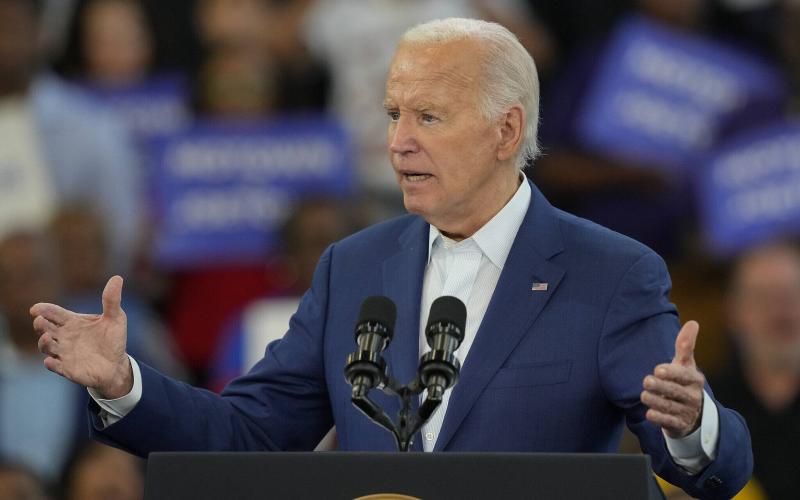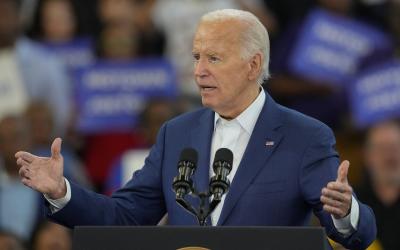Why, amid crucial negotiations to implement President Joe Biden's plan for a ceasefire in Gaza, the release of Israelis held by Hamas, a large number of Palestinians detained by Israel, and the direction toward a negotiated permanent end to the conflict—does Israeli Prime Minister Benjamin Netanyahu decide to assassinate the chief negotiator of Hamas during his visit to Iran? And why, while the United States claims it has been working to calm tensions with Lebanese Hezbollah, does Israel choose to escalate risks by assassinating the second-in-command of Hezbollah? We know the answers to both questions: Benjamin Netanyahu is not interested in peace. He does not want a negotiated agreement to release the hostages and end the war in Gaza. He does not want to ease the conflict there or in the north with Hezbollah. He certainly does not want a "two-state solution," which would grant the Palestinian people independence in a sovereign state of their own.
There are two things Netanyahu wants, both of which are irrationally linked at this point. Above all, Netanyahu desperately wants to remain in office, because if he loses his position as prime minister, attempts to prosecute him will continue with full force. Given the serious charges, he is likely to be convicted and humiliated. This is not speculation—it is widely discussed in Israel and has even been hinted at by President Biden during an interview with Time magazine on May 28. When asked, "Is Netanyahu prolonging the war for political reasons?" Biden replied, "There is every reason for people to draw that conclusion." The second reason is that Netanyahu wants the war to continue, even to escalate it. He has made this clear during his statements before Congress and in his speech to the Israeli public a few days ago. He seeks a "complete victory," which he defines as more than just a military defeat of Israel's enemies. Without acknowledging any Israeli responsibility, he accused Palestinians of creating a culture filled with hatred, which requires widespread de-radicalization in the post-war period. The resulting expectation is the acceptance of Palestinian subjugation and understanding their place as an occupied and oppressed people.
Netanyahu's worldview raises many additional questions that need consideration. If we know that Netanyahu has never accepted the conditions of Biden's plan, why does the president continue to assert that it was "Israel's plan," placing the burden on Hamas to accept it? If we know that Netanyahu is unwilling to make any peace agreement for fear of losing his other hardline coalition partners (who have threatened to abandon his government if he accepts any conditions leading to peace), why do we continue to avoid directly addressing this reality? Why has the administration not condemned the assassinations in Beirut and Iran when it knows they will certainly sabotage the negotiators' efforts? Why, when we know that Netanyahu has no intention of completing a deal for the release of prisoners, do we allow him to exploit the suffering of their families, pretending that negotiations are close to completion while we know they are not? And when we know that the demands and actions of Netanyahu's coalition partners are causing devastation and destruction in the West Bank and Jerusalem—terrorizing the Palestinian population, further annexing land, building more settlements, and erasing the possibility of Palestinian self-determination—why have we been passive and tolerant in our response?
Let’s be clear: Hamas and Hezbollah are not good actors. The former emerged from the Israeli occupation of Palestinian lands and was fueled by Israel to create division among Palestinians, driven by Israeli chokeholds on Gaza’s population for decades. The latter arose from Israel’s invasion of Lebanon and the sectarian system in that country, driven by Israel's occupation of southern Lebanon for decades and the massive destruction of the country's infrastructure in 2006. Both have certainly engaged in acts that deserve condemnation.
However, merely criticizing them while exonerating Israel from its much greater crimes is hypocrisy at best. If the United States is serious about ending the conflict in the region, rather than ignoring Israel's behaviors designed to provoke further wars, we must stop playing games and seriously engage in holding Israel accountable. This leads us to one final question: Why do we expect anything to change when we continue to supply Israel with weapons on a large scale and prevent all efforts to impose sanctions on its behaviors?




